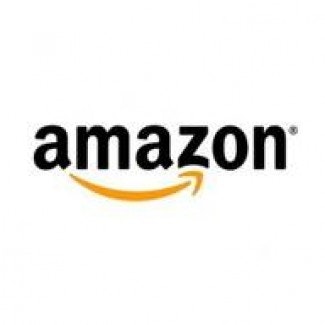One factor has been consistently underrated in Apple Inc. (NASDAQ:AAPL)’s recent rise to tech supremacy: its retail stores. Microsoft Corporation (NASDAQ:MSFT) accepted this fact a few years ago, and has been playing catch up, rolling out its own stores across the nation. Amazon.com, Inc.(NASDAQ:AMZN) would do well to follow suit.
Apple’s stores have been a key driver for the company
Apple’s stores are (almost) universally praised. Analysts are quick to trot out how Apple’s stores lead all other retailers in terms of sales per square foot. In fact, Apple-centric blog TUAW (via RetailSails) reports that Apple’s stores generate more than twice the same sales per square foot as its closest competitor, Tiffany & Co. (NYSE:TIF).

On Tuesday, Apple’s CEO Tim Cook addressed the Goldman Sachs tech conference. In his speech, Cook heaped lavish praise on his retail operation, going so far as to note that a trip to an Apple store is — to him — the equivalent of taking the popular anti-depressant drug Prozac. But he also hinted at the real point of Apple’s stores.
Apple’s stores act as the essential interface between the customer and the company. They provide a place for consumers to gather, test out new products and receive technical support. Apple’s products are known for their ease-of-use and durability. But without a place to learn and a Genius Bar to provide in-person repairs, it’s likely that the strength of both reputations would be much reduced.
Microsoft has learned it the hard way
Microsoft has learned two key lessons from Apple over the last decade.
With the launch of its Surface tablet, Microsoft followed Apple’s footsteps in producing its own hardware. Although the Surface’s reception has thus far been relatively tepid, the mere fact that Microsoft was going to produce its own hardware elicited a variety of incredulous responses, most notably from Acer’s CEO.
“We have said [to Microsoft] think it over. Think twice. It will create a huge negative impact for the ecosystem and other brands may take a negative reaction. It is not something you are good at so please think twice,” JT Wang told the Financial Times in reference to the Surface tablet.
Yet, lost in the shuffle over the excitement of the Surface, was the second lesson Microsoft learned from Apple: build your own retail operation.
Much of Microsoft’s early struggles with selling the Surface might be blamed on the fact that the Windows maker agreed to sell the tablet only either online or at its Microsoft retail outlets. Those outlets are still relatively few in number, and many of them were only temporary, “pop-up” stores back in October.
But Microsoft, perhaps seeing the potential success of its retail arm, announced in December that many of its then-temporary stores would be converted into permanent outlets. It seems Microsoft’s retail arm is here to stay.
Amazon should copy Microsoft
It’s becoming increasingly clear that Amazon is shifting from being the world’s largest online retailer to a full-on tech device maker.
As more goods shift from physical to virtual media (CDs to mp3s; books to ebooks; DVDs to video files), Amazon’s decision to create these products makes sense from a business standpoint. Yet its efforts will be hobbled if it does not enter the brick and mortar game.
Target Corporation (NYSE:TGT), sensing the fact that it was — quite literally — selling Amazon the rope with which to hang it, stopped carrying the Kindle lineup last May.
Critics might be quick to point out that Target is but one store, and many others like Best Buy Co., Inc. (NYSE:BBY) still carry Amazon’s Kindles. That’s true, but as Best Buy’s shares have been obliterated over the last year, its long-term future seems doubtful.
With dedicated electronic retailers in secular decline, and general-purpose stores showing a distaste for Amazon’s devices, the company should consider putting its fate in its own hands.
There would be other advantages to an Amazon store
Beyond copying Apple — providing a place for consumers to test-drive Kindles and receive tech support — Amazon would gain a number of unique advantages from opening stores.
Amazon stores could act as drop-off points for returns, streamlining the process and making it easier and potentially cheaper. They could also act as package pick-up spots — Amazon has begun installing lockers in certain urban areas as a safer alternative to at-home delivery, showing that there is a strong need for such a service.
Further, though it’s hard to quantify, some consumers remain skeptical of online shopping in general. Perhaps having a store where a consumer can talk to an Amazon rep in-person would help to increase trust and ease the transition to online shopping.
Amazon doesn’t have to make an acquisition
Although the chatter has died down, a big rumor for much of 2012 was that Amazon would consider purchasing Best Buy. Obviously, that never played out, and it probably won’t.
Apple (and now Microsoft) have built their operations from the ground up. Buying Best Buy wouldn’t necessarily give Amazon any advantage over developing its own operations, as the company did with both its video game and movie studios.
Thus, it would be wrong for investors to load up on Best Buy’s stock, hoping for an Amazon takeover that will likely never come.
Rather, longtime Amazon shareholders should recognize the strategic value a retail operation would bring to the company. If Amazon never takes the plunge, the company may run into significant strategic problems at some future date.
On the other hand, if Amazon does break into retail, it might make the company more of an attractive investment. If that day comes, Amazon’s critics will probably call it a mistake. But don’t be fooled: It might be one of the best moves the company could make.
The article Why Amazon Needs Brick and Mortar originally appeared on Fool.com and is written by Salvatore “Sam” Mattera.
Copyright © 1995 – 2013 The Motley Fool, LLC. All rights reserved. The Motley Fool has a disclosure policy.





